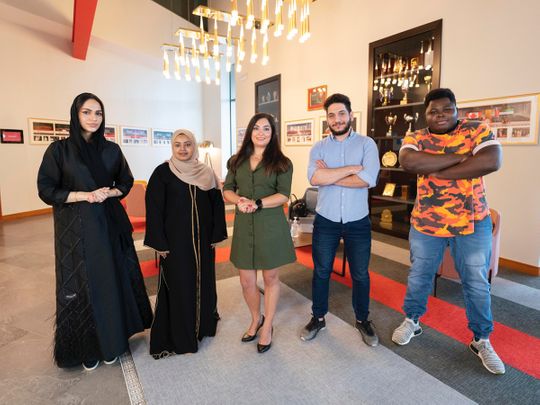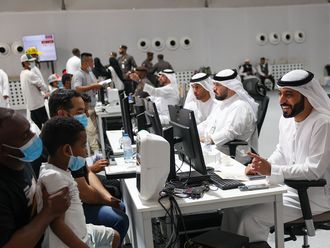
Dubai: A team of engineering students at Canadian University Dubai (CUD) said it has developed a system that is able to “detect, predict, and prevent criminal behaviour” using artificial intelligence.
The system, known as Tatabou3, is based on the use of computer vision – a camera that can provide automated real-time video analysis, facial recognition, and emotion detection. If any suspicious behaviour is detected, an alarm is triggered to alert authorities. The system aims to help law enforcement authorities “accelerate their investigations and stop future criminal activities among known and previous offenders”, CUD said.
Graduation project
Tatabaou3 is the culmination of a graduation project by Bachelor of Computer and Networking Engineering Technology students Amani Matoug and Chima Felix; and Network Engineering majors Munia Alkhidir and Mohammed Dib.
Dib said: “The system goes beyond traditional CCTV technology, which is usually only viewed after a crime has happened. We have used machine vision to detect real-time facial expressions and body language that can indicate a crime is being, or about to be committed. When suspicious behaviour is detected, an alarm is triggered to alert the relevant individuals and authorities.”
Matoug said: “The system also includes a cloud-based data bank that is continually updated. This allows police forces to track investigations, log information on evidence, suspects, crime scenes, witnesses, and any other relevant data that could help to solve cases and prevent future offences. The data is accessible at all times to authorized users through a police office web application.”
Felix said: “We wanted to develop a solution that would have a positive impact on the whole of society. When crimes go unsolved and criminals remains free, everyone is in danger. By integrating machine vision and cloud technology our system supports the timely detection and resolution of crime. It also incorporates a suspect prediction algorithm that can help anticipate criminal activity based on body recognition.”
‘Positive’ feedback from police
Discussing the plans for future development, Alkhidir said: “We’ve already had the opportunity to present the technology to officers in the Dubai Police and Sharjah Police, who have been very positive about its potential. We believe that the system can save valuable time and resources in crime fighting, and we aim to continue working with the authorities to deploy it within the community.”
The team was mentored by Assistant Professor Dr Rita Zgheib, who said: “This initiative demonstrates the combination of technical knowledge and personal qualities that the students have developed throughout their programme. It has been impressive to see how they have come together as a team and combined their different skillsets to create an innovative solution to a real-world problem. We always encourage engineering student to harness technology for the advancement of society, so we are very proud of what this team has achieved.”








